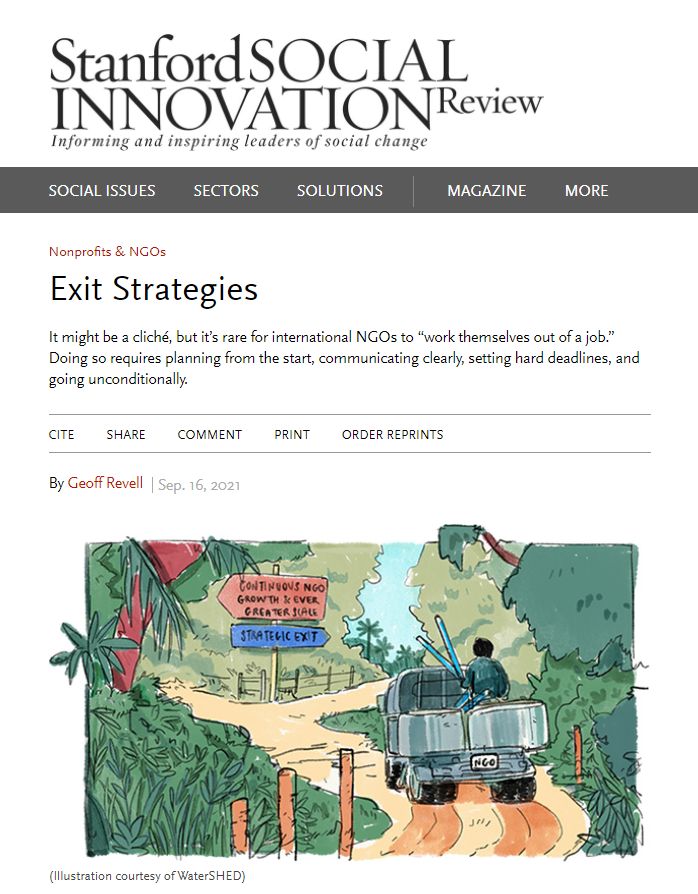Exit Strategies (SSIR)
When is it time for an NGO to exit? Trick question: It’s always time. Of course, I don’t mean every NGO should close its doors immediately; I mean that every foreign-funded development NGO should be planning for—and working towards—its eventual exit, every single day.
It might be a cliché, but it’s rare for international NGOs to “work themselves out of a job.” Doing so requires planning from the start, communicating clearly, setting hard deadlines, and going unconditionally.
Ten years ago, I cofounded an NGO in Cambodia, WaterSHED. Back then, less than 20 percent of families in rural Cambodia used toilets, even after countless NGOs, bilateral agencies, UN agencies, and multilateral organizations had spent astronomical sums delivering free toilets and awareness campaigns about using toilets. The health consequences were immense, and there were few signs of improvement. WaterSHED honed in on a set of key market failures that prevented the sustainable delivery of the services that households needed, but from the outset, we tried to solve the underlying problems in such a way as to permit our eventual exit (and if we couldn’t make headway, we figured we should exit anyway and stop wasting time and money).
Today, toilets have become affordable and accessible across the country, the second-fastest improvement in sanitation in the world…
Read the full article by WaterSHED founder, Geoff Revell, published in Stanford Social Innovation Review (Winter 2022).

